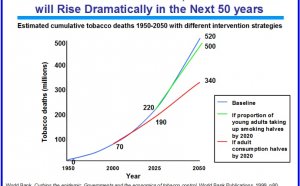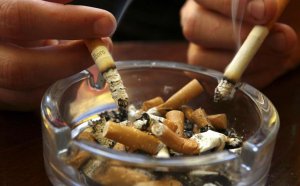
Information About tobacco
Tobacco quitlines that follow the evidence-based protocols set forth in the Public Health Service (PHS) Guideline are considered an allowable Medicaid administrative activity for the "proper and efficient" administration of the Medicaid state plan, to the extent that the quitline provides support to Medicaid beneficiaries under the auspices of the state Medicaid agency.
States can claim Federal Financial Participation (FFP) for quitline expenditures in accordance with the applicable cost principles under OMB Circular A-87. In order for states to claim expenditures related to quitlines as an administrative cost at the 50 percent Federal Medicaid matching rate, such claims may not duplicate costs that have been, or should have been, paid through another source. States can only claim FFP for the quitline to the degree that the quitline serves Medicaid beneficiaries. Allowable costs must also be allocated in accordance with the relative benefits received by the Medicaid program. For more information, see State Medicaid Director Letter #11-007, "New Medicaid Tobacco Cessation Services."
Steps will vary state by state, but here is an example of how a state can proceed:
Are Quitlines Cost Effective?
Quitlines are a cost-effective and efficient way to reach a large number of smokers. Studies indicate that for every smoker who quits in response to tobacco control measures, such as through a quitline, total health care costs over the next five years drop, on average, by approximately $2, 400. Additionally, quitlines are cost-efficient because they provide economies of scale by serving large numbers of tobacco users. Quitlines are able to offer resources to priority populations such as pregnant women, can deliver services to multi-lingual groups, and make large-scale promotional campaigns more feasible and effective.
Maryland - Quitline Example
Maryland's Department of Health and Mental Hygiene (DHMH), which includes the state public health and Medicaid programs, was one of the first states to obtain approval for a cost allocation plan to claim federal Medicaid administrative match for quitline activities. Medicaid's partnership with the public health agency in supporting the quitline has resulted in improved cessation services to Medicaid enrollees, improved sustainability for the quitline, and a demonstrated model of third-party reimbursement.
The Maryland Tobacco Quitline serves both Medicaid and non-Medicaid populations. The Maryland Medicaid agency and the state tobacco quitline collaborated to develop and submit a cost allocation plan to the CMS for reimbursement of quitline services for Medicaid members as an administrative match. Upon calling the quitline, individuals are asked their insurance status and the name of their insurance carrier. Monthly client utilization data is compiled from an intake survey conducted when callers initiate service. Allowable reimbursement includes a 50 percent match of counseling expenditures for Medicaid callers, who currently make up about 30 percent of quitline users.
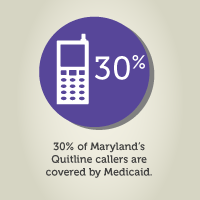
From July 2011 through June 2012, Maryland served 2, 108 Medicaid participants through the state quitline and has submitted administrative claims for $161, 542.55. This support came at a critical time for the quitline, as the overall call volume grew from 14, 132 inbound calls in state fiscal year 2011 to 18, 590 inbound calls in state fiscal year 2012.
Maryland's leadership in the quitline-Medicaid partnership has garnered interest by national colleagues. Maryland Department of Health and Mental Hygiene staff has presented on this partnership nationally, including a webinar in January 2012 for North American Quitline Consortium members, entitled, "Securing Federal Financial Participation for Quitline Services".
VIDEO REVIEWS
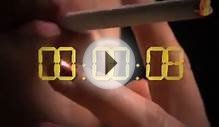
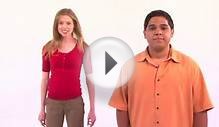
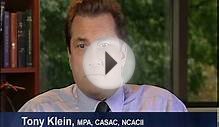
Share this Post
Related posts
Tobacco history Timeline
A tobacco history timeline published today by the Robert Wood Johnson Foundation showcases a decrease in smoking among adults…
Read MoreStatewide smoking ban
Kentucky leads the nation in smoking, and how the state goes about addressing that distinction will rest in part with the…
Read More
